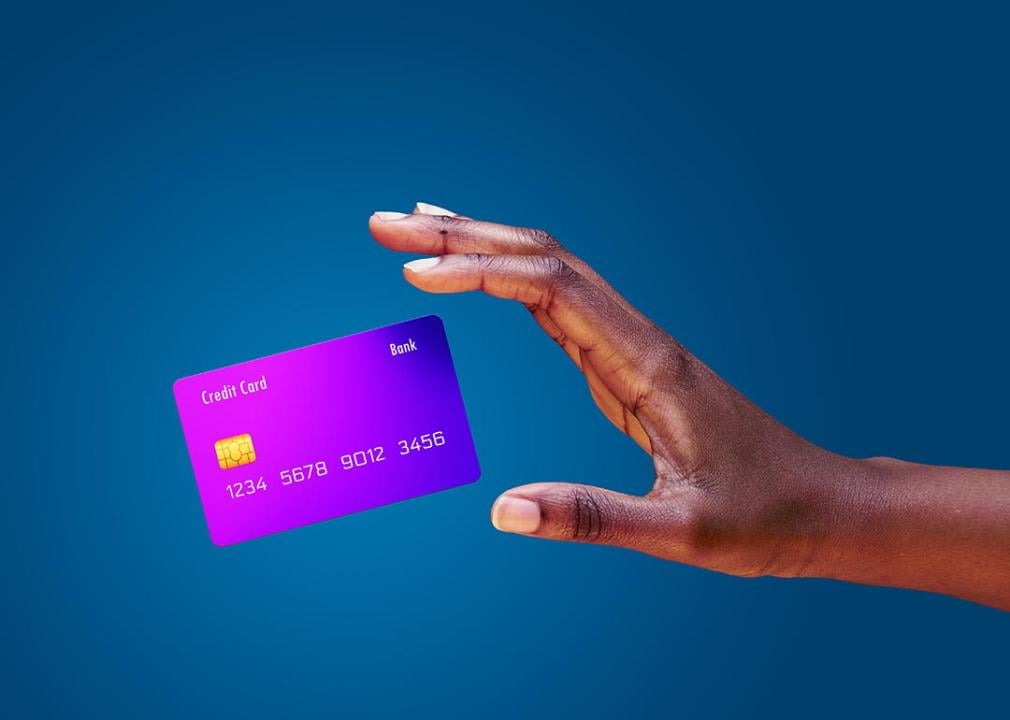Get the best credit card for your startup
Published 8:15 pm Thursday, May 16, 2024
Get the best credit card for your startup
Business credit cards are an essential tool for many startups and small businesses. After all, it takes money to make money, and credit cards provide the capital entrepreneurs need to build their businesses. But that’s not the only benefit of having one of these cards in your wallet.
The best business credit cards for startups don’t just give you access to capital; they provide effective tools and integrations for better accounting and money management, saving you precious overhead dollars. They also help you manage cash burn, giving you a longer runway with the money you have access to. Not to mention, these cards give you access to rewards and perks that may have a real impact on your bottom line, especially as you build your budding company.
There are several things you should know before you apply for a business credit card. In this article, Ramp shares everything you need to know.
Can a startup get a business credit card?
Trending
Many startups, LLCs, and sole proprietors can qualify for a business credit card. If your business doesn’t have an established credit history, you can apply using your personal credit score.
If you don’t have any credit, or your credit score isn’t very good, a secured business credit card is an option that doesn’t require any credit history and can help you build positive credit. This is because with secured cards, you’ll make a deposit that becomes your credit line. Once you’ve built your credit using a secured card, you may become eligible for a traditional credit card.
Corporate cards offer another option for startup businesses. Instead of looking at your business credit history, some cards will underwrite based on your monthly sales data. So, if your business is bringing in enough monthly revenue, you may be eligible for a card even if you don’t meet the requirements for a traditional credit card.
What is the easiest business credit card to get for a new business?
If your business lacks an established credit history, secured credit cards are the most accessible option for getting a business credit card. Unlike traditional credit cards, which often have stringent credit score and revenue requirements, secured cards are more lenient. This is because you provide an upfront cash deposit that serves as your credit limit. For businesses with less-than-stellar credit scores, secured credit cards offer an alternative way to build business credit.
Choosing the best startup business credit card for new businesses
It’s important to choose a credit card issuer that offers you all the tools you need for success. Consider the tips below as you decide which business credit card is best for your startup.
1. Know the eligibility requirements
Trending
Each unique business credit card comes with its own eligibility requirements. To qualify for most offers, you typically need at least the following:
- Good credit: The highest-quality business credit cards typically require a personal guarantee from the business owner that’s backed by a credit score of 700 or higher. So, you’ll likely need excellent credit to qualify. However, if you have an adequate business credit score you may be able to bypass the personal guarantee and credit check.
- Proof of profitability: It may be difficult to qualify for a business credit card if your company isn’t profitable yet or if it isn’t producing a profit margin that’s high enough.
- Agreement among ownership: If your startup is a partnership, lenders will typically require all members of the partnership who own more than 25% of the business to agree to open the account. As such, in most cases, anyone who owns more than 25% of your business will likely need to be listed on the application, including their names, addresses, birthdays, and social security numbers.
If you don’t meet the requirements above, don’t worry—you’re not out of luck. Some corporate cards can use your sales data instead of years of business credit history or a personal guarantee to underwrite your business.
Can I get a business credit card with no business income?
Although some credit card providers will look at your business income, you can still get a business credit card if you use a personal guarantee. That way, you’ll agree to repay any debts your business can’t pay back from your own pocket.
2. Look for rewards that help your startup
Rewards have become commonplace in the credit card industry. Rather than looking at membership rewards and additional perks as extras, consider them as essential tools to help you grow your company.
Most cards only offer rewards or bonus points on eligible purchases in certain spending categories like office supplies, travel expenses, or dining. What you can redeem your rewards for also varies by card, so you’ll want to consider whether you want travel rewards or more general rewards.
To avoid the complexity of trying to spend within the right bonus categories, you might consider looking for a card that offers universal cashback rewards on all purchases. That way, you don’t have to tailor where you spend your money, and you’ll know the value of the rewards every time you make a purchase. Cashback is often applied as a statement credit that you can put right back into funding your business.
3. Evaluate potential fees and interest
It’s important to look for an option that comes with a low interest rate if you’re not able to completely pay off your balance each billing cycle. Some cards also come with a 0% introductory APR period at account opening that you can use to perform balance transfers and pay down your debts on other cards.
However, interest often isn’t the only fee you’ll pay as a cardholder. Some other fees to watch for include:
- Annual fees
- Cash advance fees
- Balance transfer fees during the intro APR period
- Foreign transaction fees
- Late payment fees
- Returned check fees
Make sure you’re aware of any fees you may be required to pay before you fill out any business credit card application. Or, you can avoid those fees by taking advantage of corporate purchase cards. These are charge cards, alleviating interest fees.
4. Compare terms and conditions
Different terms apply to each card, so you’ll want to familiarize yourself with your provider’s unique terms and conditions.
For example, some credit cards automatically revert to a default interest rate if you make a single late payment. In other cases, you won’t experience a default rate unless you completely miss a payment or make multiple late payments over a predetermined period of time.
Moreover, as the business owner, you may be personally liable if your business is unable to make payments, which could lead to collection actions, poor credit, and even bankruptcy.
5. Look for spend management features
Quality spend management is essential for every business, but it can mean the difference between growth and bankruptcy for startups. The best cards for startups come with spend management software. Some features to look for include:
- Employee cards: Look for cards that offer unlimited physical and virtual employee credit cards, allowing your team to make purchases while eliminating the need for reimbursement programs.
- Real-time reporting: Automated expense tracking and reporting features let you see where your business spends the most—good spend management software will identify savings insights to optimize your spending, like duplicate software subscriptions or redundant vendor charges.
- Receipt matching: Automated receipt matching can help automate your expense reporting, freeing up hours of work.
How to get a business credit card for a startup
So, you’re ready to get a business credit card, but what are the steps to doing so? Read on to learn everything you need to know.
1. Building credit history
If your business isn’t at least three years old, you’ll likely need to rely on your personal credit for access to a business credit card. Even if your business is over three years old, if it doesn’t have any credit history, you’ll need to rely on your personal credit score.
As such, it’s important to work on your credit history and improve your score. You can do so by opening and using a secured credit card, a credit card that requires you to make a security deposit that becomes your credit limit. The good news is that once you do get a business credit card using your personal credit, you’ll start building your business’s credit score. And as long as you use your credit card responsibly, your business will qualify for a credit card on its own in time.
2. Required documents
Once you find an offer that meets your business needs, it’s time to submit an application. In most cases, you’ll be required to submit a series of documents for review by the lender’s underwriters. These documents typically include:
- Identification documents for all owners who hold more than a 25% stake.
- Your incorporation documents to prove the number of years you’ve been in business.
- Your most recent financial data including P&L reports. Some lenders may also ask for bank statements.
- Documents for personal assets. Keep in mind, you may be required to make a personal guarantee to access credit for your startup. This could mean securing the credit with your home, car, boat, or any other property.
3. Wait for approval
Several factors play a role in the amount of time you may have to wait for approval. In some cases, you’ll receive an instant decision in a matter of seconds. If the lender needs more information or further review, the process may take anywhere from a couple of days to a few weeks.
What is the average credit limit for a business credit card?
The average business credit card limit in the United States is $56,100, but your limit may differ significantly from national averages. That’s because a lot of data goes into calculating the credit limit your business qualifies for. Some key factors involved in the calculation include:
- Your credit score: Those with the best credit scores will likely enjoy higher credit limits.
- Your company’s profits: Credit card companies are only going to lend you money they believe you can pay back over time. The higher your profitability is, the more access you’ll have to the capital needed to pay them back. As such, higher profitability typically equates to higher credit limits.
- The offer you choose: Some lenders have a reputation for offering higher credit limits than others. However, a high credit limit may not be more beneficial than other tools. So this shouldn’t be your sole basis for choosing one offer over another.
- Underwriting style: Some lenders follow traditional underwriting methods to determine your credit limit. That means it’s based on a mix of your credit score, revenue, profitability, and other financial metrics. On the other hand, sales-based underwriters base their decisions on the sales you generate. This style of underwriting can result in credit limits that are up to 30 times those of cards with a traditional underwriting process.
There are a few things you can do to improve your chances of approval for a business credit card and higher credit limits. Those include:
- Work on your personal credit history: The better your personal credit score is, the better your approval chances are for your business credit card application.
- Prepare: In some cases, an inability to provide the specific information the lender requests can result in your application being declined. Take time to get your documents together and form an accurate understanding of your business’s finances before you apply for a credit card.
- Be picky: Don’t blindly apply for several cards. Instead, apply for cards that match your credit profile.
- Reduce your credit utilization ratio: Reducing your personal credit utilization ratio may result in better approval odds and higher credit limits on business credit cards.
What you can use your startup business credit card for
Here’s a general list of items you can (and should) use your business credit card to pay for:
- Technology (hardware and software)
- Marketing and advertising expenses
- Office supplies
- Business insurance and licenses
- Internal and external-facing office events
- Business travel expenses
The list above includes things that most businesses rely on business credit cards to pay for. However, it’s not an exhaustive list. The items listed below can also be paid for using a business credit card, but be careful not to do so if you can’t pay the balance. Otherwise, you might find yourself having to pay interest on the following:
- Payroll
- Taxes
- Office leases and/or mortgage payments
- Business travel upgrades
Before you start using your business credit card, take some time to project out your business expenses over the next few months and ensure that you’re not overextending your resources.
![]()
This story was produced by Ramp and reviewed and distributed by Stacker Media.






